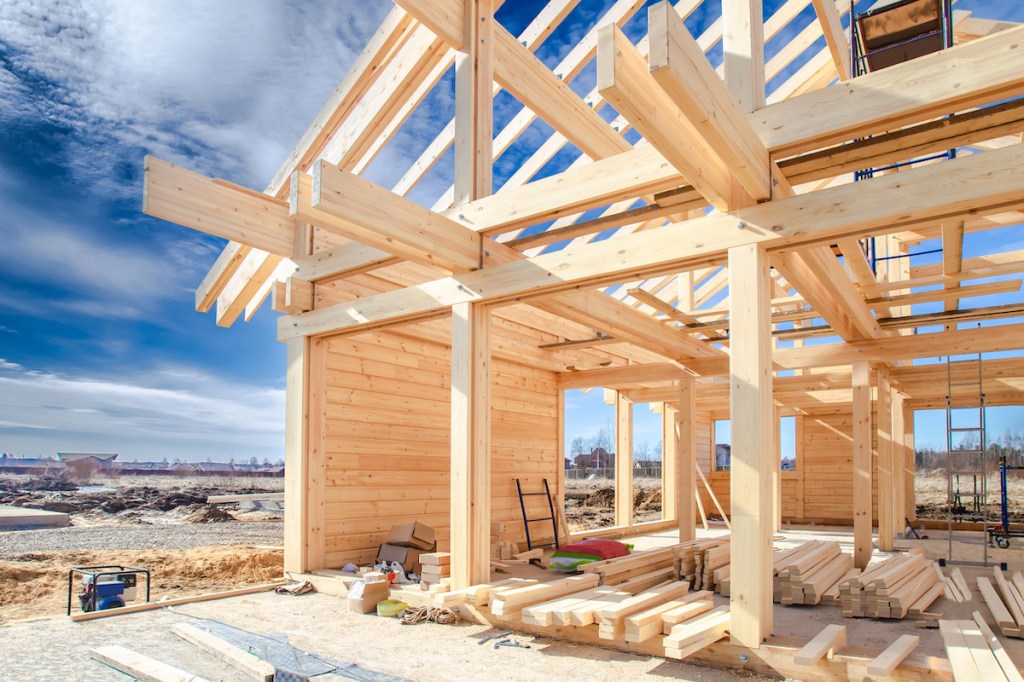Toronto-based Tricon Residential Inc., which oversees a portfolio of more than 33,000 single-family rental homes in the United States and Canada, is once again teaming up with the Arizona State Retirement System (ASRS) to invest $500 million to build 2,500 single-family rentals in the U.S. Sun Belt.
This latest deal represents the second joint venture between Tricon and ASRS. In 2019, they teamed up to make a $450 million equity commitment to develop 2,000 new “build-for-rent” homes.
Tricon notes in announcing the latest joint venture with ASRC that it “has already invested $1 billion in developing new, high-quality rental housing and has a pipeline of over 7,000 new homes currently under development.”
“The United States has a housing crisis that cannot be ignored,” said Gary Berman, CEO and president of Tricon. “Americans are facing a shortage of nearly four million homes, and families are struggling to find and afford quality housing.
“We have decades of experience in residential real estate development across the country and are excited to partner with ASRS yet again to build a new supply of high-quality, professionally-managed rental housing in the communities where people want to live.”
Tricon is contributing to a nationwide surge in single-family build-for-rent (SFBFR) construction. Another large institutional operator of single-family rentals (SFRs), Scottsdale, Arizona-based Progress Residential, which operates some 85,000 SFR properties nationwide, announced in a recent press statement that it has some 2,600 build-for-rent homes under development.
An analysis by the National Association of Home Builders (NAHB) found that there were some 21,000 SFBFR construction starts across the country during the second quarter of 2022, up 91% from the same period in 2021.
“Over the last four quarters, 69,000 such homes began construction, which is a 60% increase compared to the 43,000 estimated SFBFR starts in the prior four quarters,” the NAHB report states. “…The SFBFR market is a means to add inventory amid challenges over housing affordability and down-payment requirements in the for-sale market, particularly during a period when a growing number of people want more space and a single-family structure.”
The institutional-backed SFR sector has continued to expand its reach in 2022 in the face of a sharp downturn in the home-purchase market sparked by rapidly rising interest rates.
“Mortgage rates have been climbing since the [Federal Reserve] began an aggressive series of rate hikes in March to rein in inflation,” said Mitch Rosen, head of real estate at the online platform Yieldstreet, which provides retail investors access to a variety of investment options. “… Fewer people are now open to committing to mortgages, with demand for homebuying hitting a 22-year low in June, as rising interest rates and recession fears deter the next set of would-be buyers.
“In turn, this is all affecting existing-home sale patterns. In July, home sales were down by 30% over the prior year, while sales in the more affordable Midwest region declined by 14.4%.”
In addition to the new SFR inventory being added via home construction, institutional SFR players also continue to buy existing homes at a robust rate to expand their rental-property inventory. Evidence of that trend can be found in the SFR private-label securitization deals tracked by the Kroll Bond Rating Agency (KBRA).
Year to date through August, KBRA has tracked 12 institutional-sponsored private-label securitization transactions involving nearly 29,000 single-family rental-properties valued at $8.6 billion. These single-family rental (SFR) securitizations are often referred to as Wall Street deals because they involve large corporations that own thousands of rental properties.
The volume and number of SFR securitization deals this year is well above last year’s mark, according to KBRA data. In 2021, for the full year, there was a total of nine SFR transaction involving about 30,000 income-producing single-family rental properties valued at $7.7 billion. Year to date through August of last year, however, there was a total of only five SFR deals indirectly collateralized by some 18,000 properties valued at $4.3 billion, KBRA’s data shows.
The SFR transactions are securitized in a slightly different fashion than the structure used in traditional residential mortgage-backed securitizations — in which securities issued are backed directly by a pool of mortgages. The bonds issued in the institutional SFR deals are typically collateralized by a single fixed-rate loan, which is in turn secured by a large pool of mortgages on income-producing single-family homes.
The surge in build-for-rent single-family housing is coming at a time when there has been a sharp decline overall in single-family home construction, “as rising construction costs, elevated mortgage rates and supply-chain disruptions continue to act as a drag on the market,” according to NAHB, which notes that single-family housing starts were down by 10.1% in July and by 2.1% year to date.
The numbers on single-family home starts represent the lowest reading since June 2020, the NAHB reports.
“A housing recession is underway, with builder sentiment falling for eight consecutive months while the pace of single-family home building has declined for the last five months,” NAHB Chief Economist Robert Dietz said.






This is the biggest threat not only to the mortgage and real estate industry to our whole economy.
Someone needs to stop this monopoly, because that’s what it is.